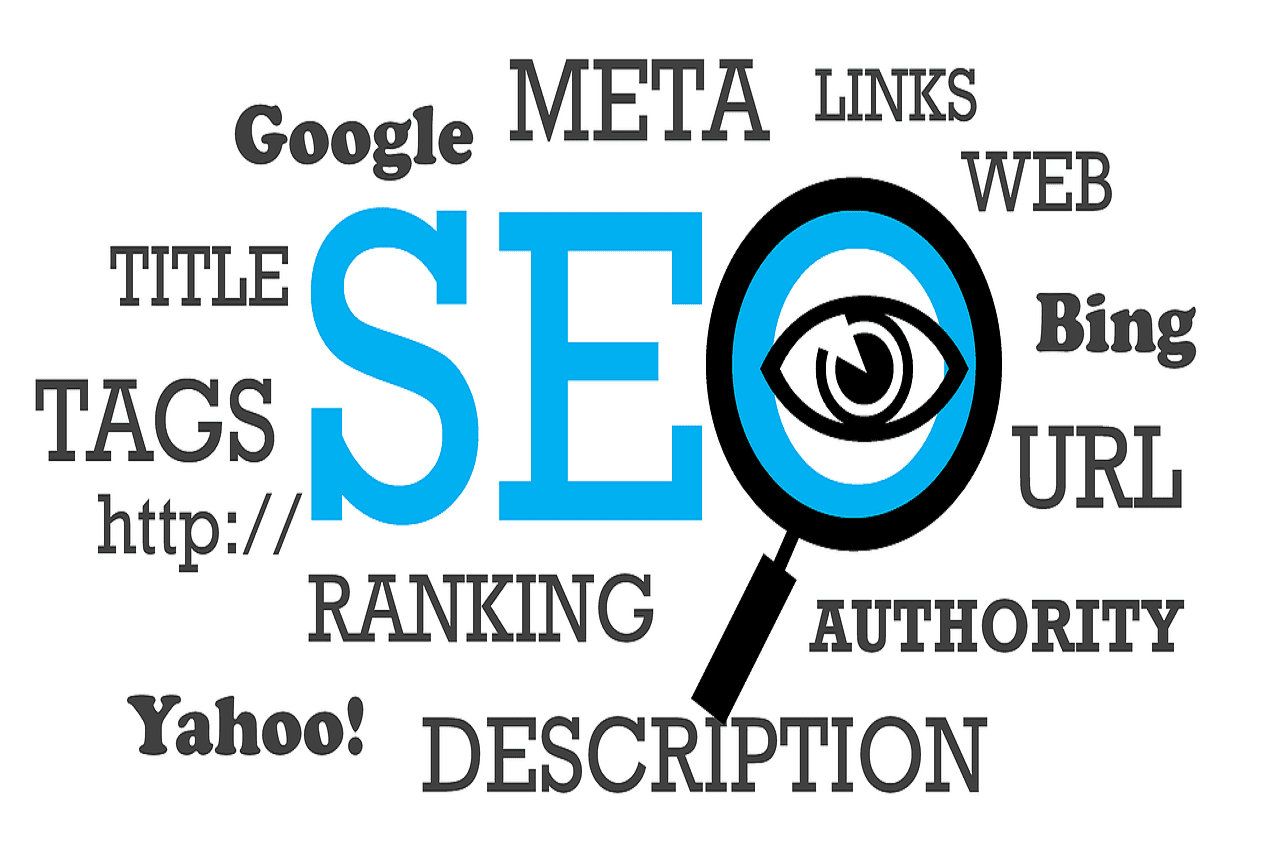Crafting Effective Meta Descriptions for SEO Success

Are you struggling to boost your website’s visibility on search engine result pages (SERPs)? Look no further! In this comprehensive guide, we will delve into the art of crafting effective meta descriptions for SEO success. Meta descriptions play a crucial role in enticing users to click on your website’s link, making them a vital component of your SEO strategy. By optimizing your meta descriptions, you can improve your website’s click-through rate (CTR), enhance organic traffic, and ultimately increase your chances of ranking higher on SERPs. Join us as we explore proven techniques and best practices to create compelling meta descriptions that drive traffic and yield SEO success.
Understanding the Importance of Meta Descriptions for SEO
In the world of search engine optimization (SEO), meta descriptions play a crucial role in attracting organic traffic to your website. Meta descriptions are HTML attributes that provide concise summaries of a web page’s content. They appear as snippets in search engine results pages (SERPs) and can greatly impact click-through rates (CTRs).
When search engines display results for a user’s query, they often show the page’s title, URL, and a brief description. This description is the meta description, and it serves as a preview of what users can expect to find on your webpage. Crafting compelling and relevant meta descriptions can entice users to click on your link, increasing the likelihood of website visits and conversions.
Meta descriptions should be concise, informative, and optimized with relevant keywords. It’s important to provide an accurate and enticing summary of your page’s content while staying within the character limit recommended by search engines, typically around 150-160 characters.
By carefully crafting meta descriptions for each page on your website, you can improve your website’s visibility and attract more targeted organic traffic. Well-written meta descriptions can also help search engines better understand the relevance and context of your content, potentially improving your search rankings.
Remember, meta descriptions are not directly used as a ranking factor by search engines, but they still have a significant impact on SEO success. They can influence user behavior and indirectly affect your website’s performance in search results.
Understanding the importance of meta descriptions in SEO is crucial for optimizing your website and driving more organic traffic. By investing time and effort into crafting effective meta descriptions, you can enhance your website’s visibility, CTRs, and ultimately, your SEO success.
Key Elements of an Effective Meta Description
A well-crafted meta description plays a crucial role in improving your website’s visibility in search engine results. To create an effective meta description, you need to consider the following key elements:
- Relevance: Your meta description should accurately reflect the content of the page it describes. It should provide a concise summary that entices users to click while setting clear expectations about what they will find on your site.
- Length: Keep your meta description within the recommended length of 50-160 characters. Search engines may truncate longer descriptions, so make sure your most important information is within this range.
- Keywords: Incorporate relevant keywords into your meta description to help search engines understand the context of your content. However, avoid keyword stuffing as it can negatively impact your rankings.
- Unique: Each page on your website should have a unique meta description. This allows search engines to differentiate between your pages and provide users with more accurate information in search results.
- Call-to-Action: Including a compelling call-to-action in your meta description can encourage users to click on your link. Use action verbs or phrases to create a sense of urgency or highlight the benefits of visiting your site.
- Accurate Preview: Make sure your meta description accurately represents the content users will find on your page. Misleading descriptions can lead to high bounce rates and a negative impact on your website’s credibility.
By implementing these key elements, you can create meta descriptions that not only improve your search engine rankings but also attract more qualified traffic to your website, ultimately leading to increased conversions and success in your SEO efforts.

Tips for Writing Compelling Meta Descriptions
Writing compelling meta descriptions is crucial for improving your website’s search engine optimization (SEO) success. Meta descriptions are HTML attributes that provide concise summaries of the content on a web page and appear as snippets in search engine results.
Here are some tips to help you craft effective and engaging meta descriptions:
- Keep it concise: Meta descriptions should be around 150-160 characters long. Use concise language to convey the essence of your page’s content and entice users to click.
- Include relevant keywords: Incorporate keywords that are relevant to your page’s content and target audience. This helps search engines understand the context and relevance of your page.
- Highlight unique selling points: Showcase what makes your page or website unique. Highlight special features, offers, or benefits to attract users’ attention and differentiate yourself from competitors.
- Write for the user: Remember that the primary audience for your meta description is the user. Craft compelling and enticing descriptions that accurately represent the content on your page and encourage users to click through.
- Avoid duplicate descriptions: Each page should have a unique meta description. Avoid using the same meta description for multiple pages, as it can confuse search engines and make it harder for your pages to rank effectively.
- Use action-oriented language: Engage users by incorporating action verbs or phrases that encourage them to take specific actions, such as “Discover,” “Learn,” “Find out,” or “Get started.”
- Consider your brand voice: Ensure that your meta descriptions align with your brand’s voice and tone. Whether it’s professional, witty, informative, or friendly, maintain consistency to create a cohesive online presence.
- Avoid misleading descriptions: Be honest and accurate in your meta descriptions. Misleading or deceptive descriptions may lead to frustrated users who leave your page quickly, impacting your bounce rate and SEO rankings.
By following these tips, you can write compelling meta descriptions that improve your website’s SEO success, attract more organic traffic, and increase click-through rates.
Optimizing Meta Descriptions for Search Engines and Users
Meta descriptions play a crucial role in attracting both search engines and users to your website. By optimizing your meta descriptions, you can improve your website’s visibility in search engine results pages (SERPs) and entice users to click through to your site. Here are some tips for optimizing your meta descriptions:
- Be concise: Keep your meta descriptions short and to the point. Search engines typically display only the first 150-160 characters, so make sure your key information is within this limit.
- Include relevant keywords: Incorporate relevant keywords in your meta descriptions to improve their visibility in search results. However, avoid keyword stuffing and ensure your descriptions read naturally.
- Write compelling copy: Craft a compelling meta description that captures the essence of your webpage and entices users to click. Use persuasive language and highlight unique selling points to differentiate your page from competitors.
- Match meta descriptions to page content: Ensure that your meta description accurately reflects the content of the corresponding webpage. Misleading or unrelated meta descriptions can lead to a negative user experience and harm your website’s reputation.
- Include a call-to-action: Encourage users to take action by including a clear call-to-action in your meta description. Whether it’s “Learn more,” “Shop now,” or “Get a free quote,” a compelling call-to-action can increase click-through rates.
- Avoid duplicate meta descriptions: Each page should have a unique meta description that accurately describes its content. Avoid using the same meta description across multiple pages, as it can confuse search engines and users.
- Consider mobile optimization: With the increasing use of mobile devices for browsing, optimize your meta descriptions for mobile users. Ensure they are readable on smaller screens and convey the most important information upfront.
By following these optimization techniques, you can create effective meta descriptions that improve your website’s visibility, attract users, and drive organic traffic to your site.
Analyzing and Testing the Performance of Meta Descriptions
Once you have crafted and implemented meta descriptions for your web pages, it is crucial to analyze their performance and continuously test different variations to optimize their effectiveness. Here are a few techniques to help you analyze and test the performance of your meta descriptions:
A/B Testing
One effective way to analyze the performance of your meta descriptions is through A/B testing. Create multiple versions of your meta descriptions and randomly assign them to different web pages. Monitor the click-through rates (CTR) of these pages using web analytics tools to determine which version is more effective in driving traffic and user engagement.
Tracking Impressions and Clicks
Utilize tools like Google Search Console or Bing Webmaster Tools to track the impressions and clicks your web pages receive in search engine results pages (SERPs). By monitoring these metrics, you can gain insights into how often your meta descriptions are being displayed and whether they are compelling users to click on your web pages.
Monitoring Bounce Rates
High bounce rates can indicate that your meta descriptions are not accurately reflecting the content of your web pages or failing to meet user expectations. Analyze the bounce rates of your pages and make adjustments to your meta descriptions accordingly. Experiment with different wording, calls to action, or highlighting unique selling points to improve user engagement.
Utilizing Heatmaps and User Feedback
Heatmap tools can provide valuable insights into how users interact with your web pages. By analyzing the areas where users focus their attention, you can determine whether your meta descriptions are effectively capturing their interest. Additionally, gather user feedback through surveys or feedback forms to understand how your meta descriptions are perceived and make improvements based on the input received.
By consistently analyzing and testing the performance of your meta descriptions, you can refine and optimize them to maximize their impact on SEO success. Remember to regularly review and update your meta descriptions to align with changes in search engine algorithms and user behavior.
Conclusion
In conclusion, crafting effective meta descriptions is crucial for achieving SEO success. A well-crafted meta description can significantly impact the click-through rate and visibility of a webpage in search engine results. By incorporating relevant keywords, engaging language, and a clear call-to-action, website owners can optimize their meta descriptions to attract more organic traffic and improve their overall SEO performance. Therefore, it is essential to invest time and effort in creating compelling meta descriptions that accurately represent the content of the webpage and entice users to click. With the right approach to meta description optimization, websites can enhance their visibility in search results and ultimately drive more targeted traffic to their pages.





